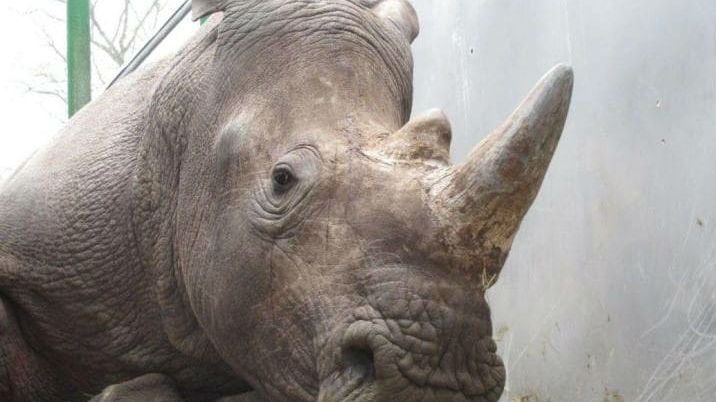China reverses ban on rhino and tiger products
Decision to relax trade restrictions an ‘enormous setback’ to conservation efforts, campaigners warn

A free daily email with the biggest news stories of the day – and the best features from TheWeek.com
You are now subscribed
Your newsletter sign-up was successful
The Chinese government has alarmed conservation groups with plans to relax restrictions on the trade of rhino horns and tiger bones.
Parts from captive animals will be authorised for scientific, medical and cultural use, Beijing’s State Council announced on Monday.
The move lifted restrictions put in place by China in 1993 as part of a global effort to protect the world’s endangered wildlife species, Al Jazeera reports.
The Week
Escape your echo chamber. Get the facts behind the news, plus analysis from multiple perspectives.

Sign up for The Week's Free Newsletters
From our morning news briefing to a weekly Good News Newsletter, get the best of The Week delivered directly to your inbox.
From our morning news briefing to a weekly Good News Newsletter, get the best of The Week delivered directly to your inbox.
Rhino horns and tiger bones are prized as ingredients in Chinese traditional medicine, but their supposed medical benefits have not been scientifically proven.
Campaigners have urged the government to reconsider the move, warning that it will push the two endangered species closer to extinction.
“We are deeply concerned about China's uplift of the ban and we are battling to comprehend this shocking decision,” Audrey Delsink, wildlife director of the Humane Society International, told the South China Morning Post.
The World Wildlife Fund (WWF) said relaxing the ban on trading rhino and tiger parts was an “enormous setback” to efforts to protect the animals in the wild.
A free daily email with the biggest news stories of the day – and the best features from TheWeek.com
Even if restricted to antiques and use in hospitals and research labs, “this trade would increase confusion by consumers and law enforcers as to which products are and are not legal, and would likely expand the markets for other tiger and rhino products”, WWF said.
But Beijing appears unwilling to budge on the issue. China's Foreign Ministry spokesperson Lu Kang said yesterday that the reversal of the ban was in line with the "reasonable needs of reality”.
-
 What to expect financially before getting a pet
What to expect financially before getting a petthe explainer Be responsible for both your furry friend and your wallet
-
 Pentagon spokesperson forced out as DHS’s resigns
Pentagon spokesperson forced out as DHS’s resignsSpeed Read Senior military adviser Col. David Butler was fired by Pete Hegseth and Homeland Security spokesperson Tricia McLaughlin is resigning
-
 Colbert, CBS spar over FCC and Talarico interview
Colbert, CBS spar over FCC and Talarico interviewSpeed Read The late night host said CBS pulled his interview with Democratic Texas state representative James Talarico over new FCC rules about political interviews
-
 Epstein files topple law CEO, roil UK government
Epstein files topple law CEO, roil UK governmentSpeed Read Peter Mandelson, Britain’s former ambassador to the US, is caught up in the scandal
-
 Iran and US prepare to meet after skirmishes
Iran and US prepare to meet after skirmishesSpeed Read The incident comes amid heightened tensions in the Middle East
-
 Israel retrieves final hostage’s body from Gaza
Israel retrieves final hostage’s body from GazaSpeed Read The 24-year-old police officer was killed during the initial Hamas attack
-
 China’s Xi targets top general in growing purge
China’s Xi targets top general in growing purgeSpeed Read Zhang Youxia is being investigated over ‘grave violations’ of the law
-
 Panama and Canada are negotiating over a crucial copper mine
Panama and Canada are negotiating over a crucial copper mineIn the Spotlight Panama is set to make a final decision on the mine this summer
-
 Why Greenland’s natural resources are nearly impossible to mine
Why Greenland’s natural resources are nearly impossible to mineThe Explainer The country’s natural landscape makes the task extremely difficult
-
 Iran cuts internet as protests escalate
Iran cuts internet as protests escalateSpeed Reada Government buildings across the country have been set on fire
-
 US nabs ‘shadow’ tanker claimed by Russia
US nabs ‘shadow’ tanker claimed by RussiaSpeed Read The ship was one of two vessels seized by the US military